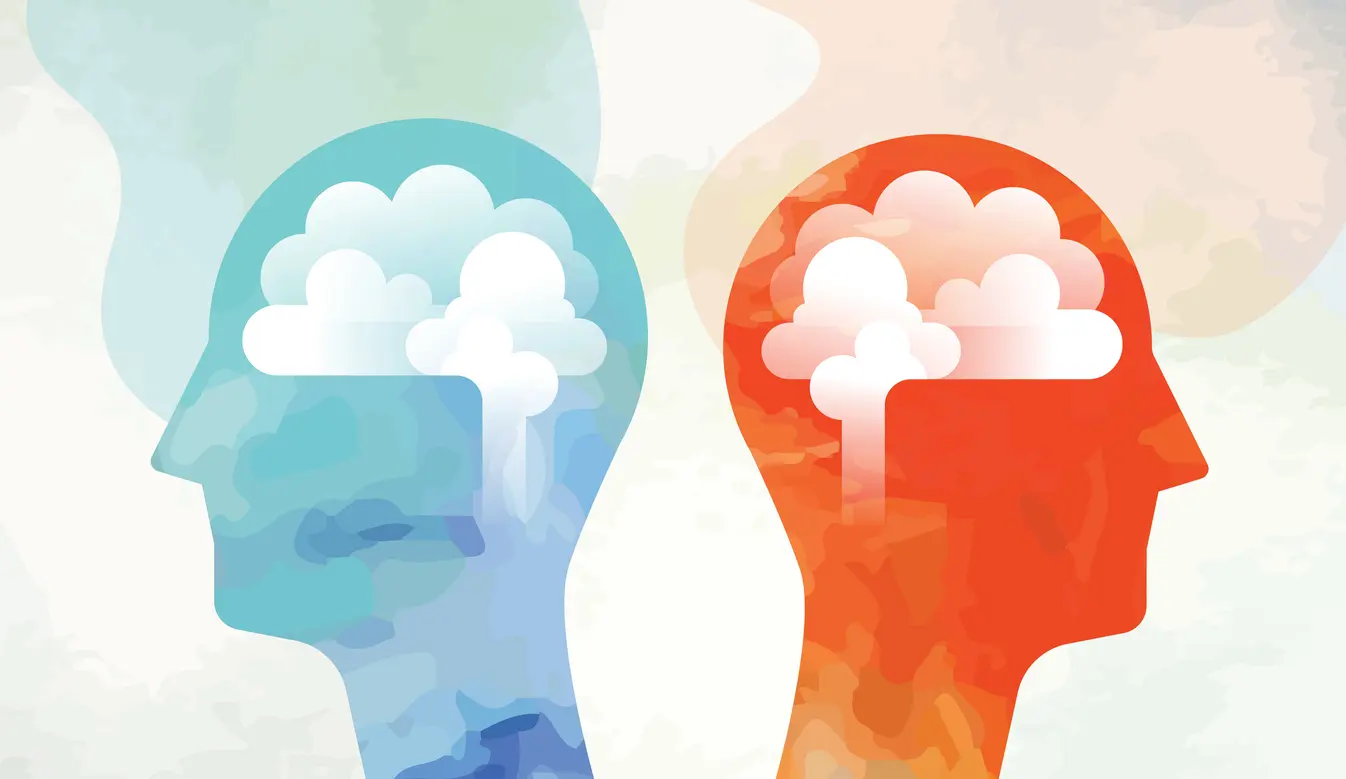
DBT
Dialectical Behavior Therapy (DBT) is a type of therapy that combines elements of cognitive-behavioral therapy and mindfuleness. It incorporates Buddhist principles and was originally developed to treat individuals with Borderline Personality Disorder, but has since been applied to other mental health conditions, including substance use disorders, depression, and anxiety.
The main focus of DBT is to help individuals learn skills to manage their emotions and cope with stress in healthier ways. Our team of licensed professionals specialize in DBT Therapy and we’d like to help you with a free consultation to understand your goals and match you with an appropriate team member.
What Is DBT Therapy?
Most forms of therapy embrace one attitude or belief over another. They reinforce our tendency to think in terms of opposites—good and bad, healthy and unhealthy, social and antisocial. The problem is that many mental health issues are characterized by “all-or-nothing” thinking. Something bad happens and we think it’s the end of the world. Someone rejects us and we feel like we’re unlovable. We leap from one extreme to the other, seeing everything in black and white and refusing to accept that there are many sides to an issue.
Instead of forcing you into an “either/or” mentality, DBT allows for a more integrated, balanced approach. It enables two truths to exist simultaneously and transcends the all-or-nothing thinking that affects so many people’s mental health.
DBT Can Help You Replace Unhealthy Habits With New Coping Skills
Although DBT was originally created to treat borderline personality disorder, it also helps with depression, anxiety, PTSD, bulimia, eating disorders, and a wide range of other mental health issues. What makes DBT so effective is its focus on erasing skill deficits and helping clients develop new coping strategies.
For example, someone with extreme anxiety may use drugs or alcohol to cope with their stress. Because of a skill deficit, they turn to a maladaptive habit (i.e., substance use) to treat their problems. DBT teaches clients to come up with healthier, more adaptive habits for regulating their symptoms. Studies have found that DBT skills training helps people with depression, anxiety, anger issues, and other conditions.[1]
How DBT Works
The main goal of DBT is to equip you with new strategies for managing your emotions and decreasing conflict. DBT has four major components: mindfulness, distress-tolerance, emotion regulation, and interpersonal effectiveness. By achieving a healthy balance in each of these four areas, you can improve your life socially, mentally, and emotionally.
Mindfulness
Mindfulness skills can help you accept the present moment as it is and increase your awareness of what’s going on within and around you. In our busy world today, so much of life consists of doing—mindfulness teaches you to just be. By paying attention to your senses and grounding yourself with activities like meditation and deep breathing, you can disarm painful emotions and stay relaxed during stressful times.
Distress-Tolerance
The second component of DBT is distress-tolerance. Learning to tolerate distress is counterintuitive—the human brain is hardwired to avoid pain. If you never confront your discomfort, however, you won’t have the chance to overcome it. DBT therapy can help you reduce avoidant behaviors and enhance your ability to live with distressing emotions. Instead of running from your problems through “numbing” behaviors (drugs, alcohol, etc.), you will learn to tolerate emotional pain in a way that is manageable for you.
Emotion-Regulation
DBT also helps with regulating—and in some cases transforming—painful emotions. After all, your emotions impact your behavior. Changing how you feel can change the way you live. For instance, suppose you feel jealous of your romantic partner because they have more friends than you. Instead of feeling jealous, DBT can help you shift from thinking “I wish I had as many friends as my partner” to “My partner is their own person and I should be happy for them.” In this way, regulating unhealthy emotions can help you maintain a more balanced perspective.
Interpersonal Effectiveness
The last component of DBT therapy deals with communication. By working on your interpersonal skills, you can become more confident and assertive while still respecting others. For example, maybe you have a friend or a partner who constantly asks you do things for them. As tired as you are of their demands, you may feel bad saying no. DBT can help you learn to say no respectfully. The goal is for you to live based on your own boundaries instead of based on what others want from you.
In each of the four above-mentioned areas, DBT seeks to promote a “both-and-rather” approach instead of an “either/or” approach. It’s about walking the middle path. It’s okay to tolerate pain, establish boundaries, and self-indulge occasionally. When our minds turn to extreme thinking, we tend to lose sight of these truths. With DBT, you will learn that you can have it both ways.
DBT Can Help You Overcome Extreme Thinking And Achieve A More Balanced Lifestyle
If you’re interested in trying DBT treatment for yourself, we encourage you to pursue counseling with us. We offer counseling services in Lakewood & Longmont, Colorado. If you’re ready to contact a marriage therapist, we invite you to call our practice owner, Alayna, at 720-551-4553 for a free 20-minute phone consultation. Alayna will match you with the appropriate person on our team. You can schedule your appointment via email, phone, or the scheduling system on our website. Right now, because of COVID-19, we offer both online and in-person DBT counseling. We look forward to hearing from you!
Helpful Reading

Healthy Habits without Self Sabotage
The journey towards maintaining healthy habits is often a road paved with good intentions, detours, and sometimes, self-sabotage. It’s a familiar scenario: you start with

Seven Tips for Improving Your Emotional Self-Regulation
Emotional self-regulation is an important skill that involves the capacity to respond to emotional experiences in a positive and helpful way. This skill is pivotal

DBT for Teens – Therapy Group
This specialized Teen DBT Group will occur at our Lakewood Office on: Tuesdays from 6-7:30pm beginning June 6th – July 18th, 2023 (Skipping the week

Emotional & Overwhelmed? How DBT Can Help
There will be times when you feel overwhelmed by emotion. The stress and the anxiety pile up and, for a spell, you’re certain you can
